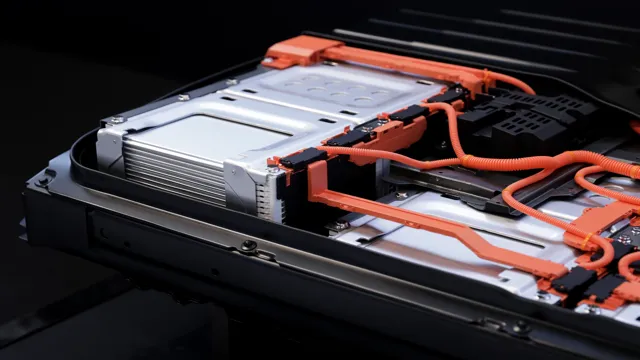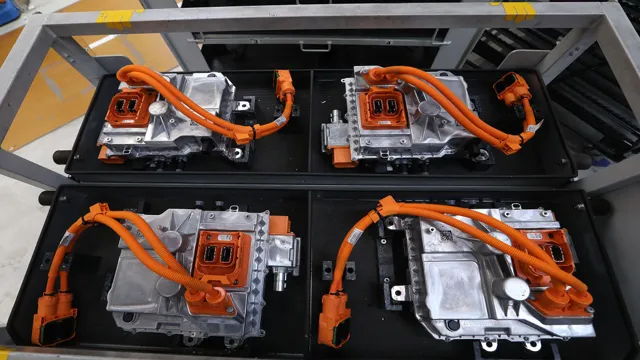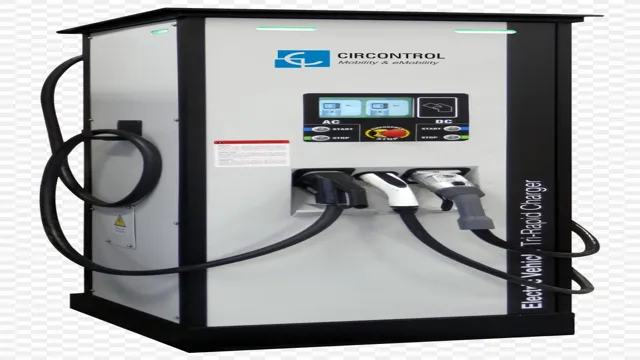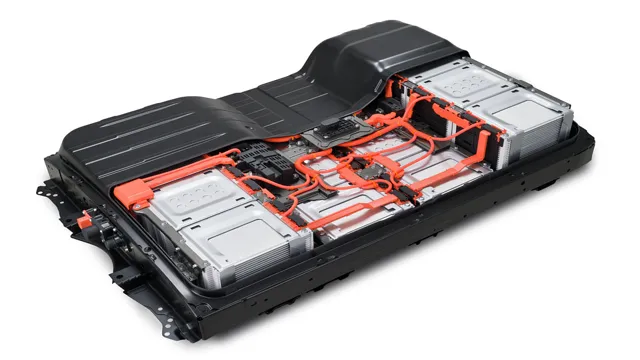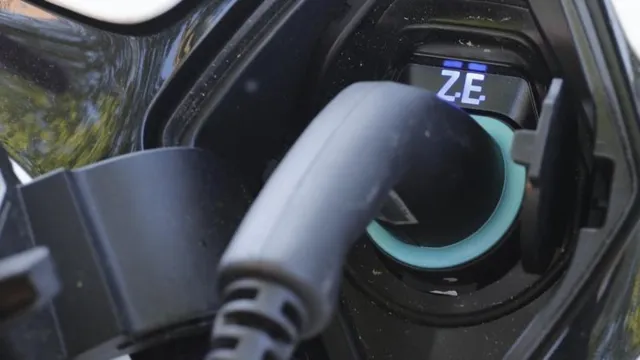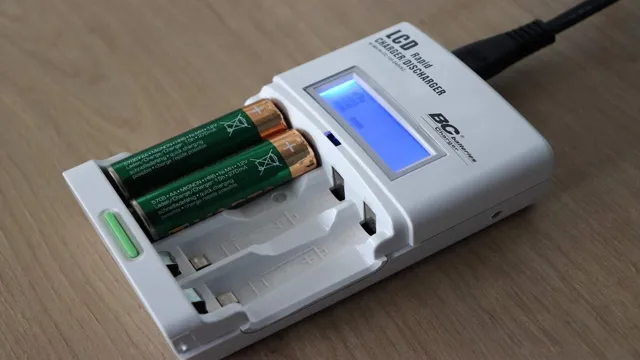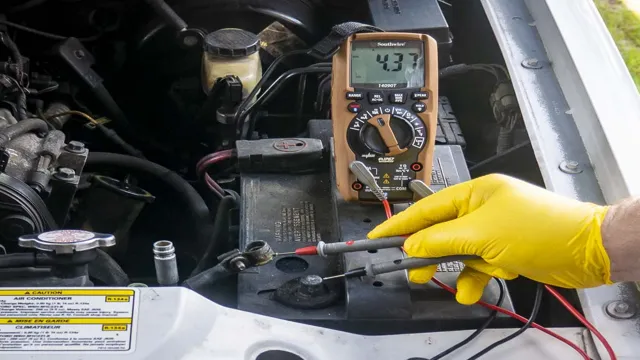Powering the Future: The Latest Battery Advances for Electric Cars
Electric vehicles are becoming increasingly popular as concerns over climate change grow. They offer an eco-friendly solution to traditional gasoline-powered cars and are great for anyone wanting to reduce their carbon footprint. However, the success of these vehicles depends on the battery technology that powers them.
Battery breakthroughs are needed to help these cars become even more efficient and drive the electric vehicle revolution forward. Luckily, scientists are actively working on solving these challenges, with a focus on creating sustainable battery solutions that offer longer ranges and faster charging times. With these advancements, the future of eco-friendly transportation is looking better than ever.
So, what are these innovations, and how do they work? Let’s find out!
Current State of Electric Car Batteries
Battery advances for electric cars have come a long way in recent years, promising longer driving ranges and faster charging times. Lithium-ion batteries are currently the most common type of battery used in EVs, but researchers are exploring novel materials such as solid-state batteries, which can store more energy and are safer to use. Solid-state batteries are also less prone to overheating and degradation, which can significantly impact battery life.
In addition to technological advances, battery recycling is also gaining traction in the industry, reducing waste and the environmental impact of EVs. As battery technology continues to improve, the future of electric cars looks brighter than ever, with longer ranges, faster charging times, and more sustainable production methods.
Battery Range and Charging Time Data
The current state of electric car batteries has come a long way in recent years. The range of an electric vehicle before needing to be charged is constantly increasing, with many models now able to travel over 200 miles on a single charge. Additionally, charging times have significantly decreased, with fast charging stations able to charge a vehicle in as little as 30 minutes.
However, it is important to note that the battery range and charging time can vary depending on a variety of factors such as weather conditions, driving style, and the age of the battery. The advancements in electric car batteries have made them more practical and convenient for daily use, and with continued innovation, we can expect even further improvements in the future.
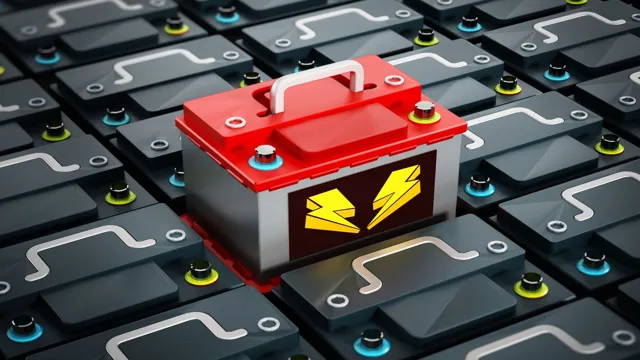
Safety Concerns with Battery Technology
The current state of electric car batteries has caused some safety concerns in the automotive industry. While electric cars have come a long way in recent years, there are still concerns about the safety of their batteries in certain situations. When electric car batteries get damaged or overheated, they can pose a serious risk of catching fire or exploding.
While these incidents are uncommon, they have happened in the past, and automakers are taking steps to prevent these incidents from happening. For example, manufacturers are installing special cooling systems and using advanced materials that are more resistant to damage. Additionally, many electric cars are equipped with features like automatic shutoffs that can turn off the battery in the event of an accident or other emergency.
As the technology continues to improve, it is likely that safety concerns surrounding electric car batteries will become less of an issue.
Emerging Technologies in Battery Research
As electric cars become more popular, researchers are constantly seeking new battery advances to meet the increasing demand. One promising technology is solid-state batteries, which use a solid electrolyte instead of a liquid one. This not only makes them safer and more durable but also allows for faster charging times and higher energy density.
Another emerging technology is lithium-sulfur batteries, which have the potential to store more energy per weight than lithium-ion batteries. Additionally, researchers are also exploring the use of advanced materials, such as graphene and silicon, to improve the performance and efficiency of batteries. With these exciting developments, it’s clear that the future of electric cars is bright and full of innovation.
Solid State Batteries
Solid State Batteries Are you tired of your smartphone or electric vehicle battery draining quickly? Well, there’s hope on the horizon! Researchers are now focusing on developing solid state batteries that could entirely revolutionize the energy storage industry. These batteries have gained popularity in recent years due to their ability to store more power while being smaller and safer than traditional batteries. Solid state batteries are a type of battery that uses a solid electrolyte instead of a liquid electrolyte, which reduces the risk of combustion, enhances battery life, and can increase charging speed.
This technology promises to provide more extended battery life and faster-charging capabilities, could help electric vehicles to drive further, and offer more excellent energy storage capabilities for renewable sources such as solar and wind power. With this promising technology, consumers could see fewer battery-related issues and reduced environmental impact due to more efficient energy use. Solid state batteries are still in the development stage, but they may be the solution to the limitations of traditional batteries.
Lithium-Sulfur Batteries
Lithium-sulfur batteries are an emerging technology in battery research that may revolutionize the way we store and use energy. Unlike traditional lithium-ion batteries, which use liquid electrolytes, lithium-sulfur batteries use solid-state electrolytes. This means they can hold more energy, making them lighter and more efficient.
Additionally, sulfur is abundant and inexpensive, making these batteries more environmentally friendly and cost-effective. However, there are still some challenges to overcome, such as rapid degradation of the battery and reduced performance at low temperatures. Scientists are continuing to work on improving the technology to make it more reliable and practical for everyday use.
In the future, lithium-sulfur batteries could be used in a variety of applications, from powering electric cars to storing renewable energy from solar and wind sources.
Graphene Batteries
Graphene batteries are an emerging technology in battery research and development. Graphene is a unique material that has been shown to have exceptional conductivity and strength, which makes it an excellent candidate for battery use. In fact, graphene batteries are among the most energy-dense and long-lasting on the market.
The benefits of this technology are vast, including faster charging times, longer-lasting battery life, and increased efficiency. Graphene batteries have the potential to revolutionize not only the battery industry but also energy storage as a whole. With this technology, we may be able to power homes, cities, and vehicles with renewable energy sources on an even larger scale.
It’s exciting to see where this technology may take us in the future and the impact it will have on our world.
Integration of Renewable Energy into Electric Cars
As the world looks to reduce its carbon footprint, there has been a surge in the demand for electric cars. Battery advances for electric cars play a pivotal role in this transition towards a sustainable future. By integrating renewable energy sources such as solar and wind power, electric cars can be charged more sustainably.
Moreover, advanced lithium-ion batteries have increased the range of electric cars and reduced charging times. This has made electric cars more practical and economically viable for longer commutes. Battery advances have also led to the development of fast-charging stations where electric cars can be charged in a matter of minutes, making road trips a possibility.
As technology continues to progress, we can expect further enhancements in battery capacity, efficiency, and cost reductions for electric cars, driving us even closer towards a greener future.
Solar Panels on Cars
Solar panels on cars have been gaining popularity in recent years as an innovative way to integrate renewable energy into electric vehicles. By harnessing the power of the sun, solar panels can supplement the energy needed to power electric cars, thereby increasing their energy efficiency and range. This technology not only reduces dependence on non-renewable energy resources but can also potentially lower the cost of operating electric cars over time.
The integration of solar panels on cars is not without its challenges, however. Panels need to be mounted securely and efficiently to ensure maximum solar energy absorption, and their weight can also impact the car’s performance and handling. However, with continued advancements in technology and design, solar panels on cars could become a more common sight on our roads in the near future.
Vehicle-to-Grid Technology
Vehicle-to-Grid technology is an exciting innovation that is set to revolutionize the way we use renewable energy sources. This technology enables electric cars to not just consume energy but also to generate, store, and distribute energy back to the grid when they are not in use. Essentially, when the electric car is parked and plugged into the grid, it can act as a battery and feed excess energy back into the grid, thereby reducing the need for traditional fossil fuel power plants and promoting a clean energy future.
This integration of renewable energy sources into electric cars has several benefits, including reduced greenhouse gas emissions, lower energy bills for car owners, and greater energy reliability for the community. With Vehicle-to-Grid technology, electric cars are not just a means of transportation but an integral part of a clean energy ecosystem.
The Future of Battery Technology
Battery technology has come a long way in recent years, and this is great news for the electric car industry. The latest battery advances for electric cars show that we can expect greater reliability, endurance, and overall performance. The electric car market has grown rapidly, and with the successful implementation of newer and better battery technology, there is no doubt that it will continue to grow.
Engineers are working tirelessly to create long-lasting batteries that are lightweight, affordable, and incredibly efficient. These new batteries are being designed to meet the increasing energy requirements of electric cars, and many companies are investing heavily in research and development. Battery advances are essential for the growth of the electric car market, and as we move towards a greener future, we can expect to see more innovations in this field.
With these battery advances, we have the potential to create a smarter, more sustainable future, and it’s an exciting time to be a part of this ongoing evolution.
Conclusion
In conclusion, the ongoing battery advances for electric cars are revolutionizing the automotive industry in more ways than one. From increased range and power to faster charging times and reduced costs, these advancements are bringing us closer to a future where electric cars are the norm rather than the exception. As we continue to push the boundaries of battery technology, it’s safe to say that the days of gas-guzzling vehicles are numbered.
So let’s all charge forward and embrace this electrifying new era!”
FAQs
How have recent battery advances impacted the range of electric cars?
Recent battery advances have significantly increased the range of electric cars, making them more practical for everyday use. Some electric vehicles can now travel over 300 miles on a single charge.
What types of batteries are used in electric cars?
Lithium-ion batteries are most commonly used in electric cars due to their high energy density, long lifespan, and low maintenance requirements.
Can electric car batteries be recycled?
Yes, electric car batteries can and should be recycled. This helps to reduce waste and recover valuable materials such as lithium, cobalt, and nickel.
How does charging an electric car battery compare to filling a gas tank?
Charging an electric car battery is generally cheaper and more convenient than filling a gas tank. Many electric cars can be charged at home overnight, while public charging stations are becoming more widespread.
